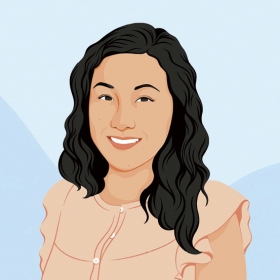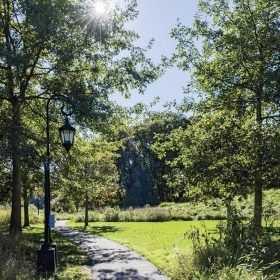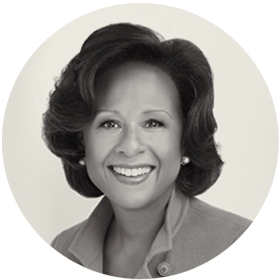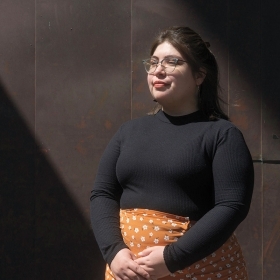So many College employees went far above and beyond last spring. Here are two, who helped build a sense of community for the students who remained on campus and worked to keep them safe and comfortable.

Illustration by Louisa Cannell
This spring, workers all over the College—from Wellesley’s Senior Leadership team to custodians in facilities to fund-raisers in Development—had to adjust to complex and rapidly changing conditions, problem-solving in real time. So many went far above and beyond. Here are two, who helped build a sense of community for the students who remained on campus and worked to keep them safe and comfortable
Helen Y. Wang, Director of Residence Life and Housing
How do you create community in a crisis—especially when that crisis means keeping people apart in an environment designed to bring them together? That was the dilemma Helen Wang faced when Wellesley sent the vast majority of its students home in March. How could the College continue to support the needs of around 180 students who were forced by circumstances to stay on campus?
Wang says that the students who stayed behind—socially distancing in five residence halls—quickly adjusted to the “‘alone together’ principle, finding ways to still acknowledge one another while being safe and protective of the environment. I think the friendliness of the community has grown, because it’s such a small one.”
The students’ social connections included weekly Zoom get-togethers, “quaran-teas,” a book club, virtual bingo games and baking, a poem-a-day newsletter, and more.
Wang says she was pleased, but not surprised, that students were so compliant and did “an incredible job of taking care of their environment” in the res halls. “Unique to Wellesley is how important this environment is as a home base. This is their sanctuary, and their emotional tie to this space is real, deep, and beyond compare,” she says.
Wang credits College leadership with setting a tone for the crisis that helped everyone manage their anxiety and fear. “There are so many ways to describe what heroism is in these circumstances. We have steady, thoughtful, really data-driven, made virtually, leadership, and that’s what we need in a pandemic. I don’t think we could be more fortunate than to have [Paula Johnson] at the helm right now.”
Wang is hopeful that Wellesley will adjust and reopen this fall with a renewed sense of the value of the community. “We can do this,” she says. “I have no doubt that we’re going to get through this. I’ve never doubted. I think we are best served in this environment by being grateful for one another and what we have.”
David Parisi, Director of Culinary Operations
Wellesley’s director of culinary operations, David Parisi—a trained chef—has worked in food service environments ranging from fast food to New York’s Ritz-Carlton. But he had never encountered the situation he faced this spring, when his responsibilities for feeding more than 2,000 students in dining halls shifted to feeding fewer than 200 in social-distancing conditions—in just a few days. Working to maintain safe conditions for students and staff alike, he deployed food-service preparers into two teams that worked a week on and a week off in two different locations.
The students who remained on campus were from all over the world and had different dietary needs. Parisi provided kosher and Halal meals, as well as Suhoor bags and extra water for students fasting during Ramadan. But his main concern was for the students: “I can’t imagine being a young adult, 18 to 22 years old, and … being several thousand miles away from home or not being able to get home, and feeling a sense of isolation,” he says. “So anything we [could] do to alleviate a little bit of that anxiety … that was important to me.”
He and his team first provided bags of snacks for students to take back to their rooms—fruit, chips, Oreos. But when he learned from Helen Wang that some students were anxious about coming to the dining halls, they swung into action—preparing 90 full grocery bags of staples that could be cooked in kitchenettes. There was home-made peanut butter and pasta sauce, a pound of pasta, bread, carrots, and much more. Wang gave them a public shout-out on the College’s email system: “Our initial ask for items was met with energy, creativity, and a let’s-go attitude … .” And for Parisi, who delivered the bags personally, the student response was worth the effort: They would “light up and [say] oh my gosh, look what’s in here!”


